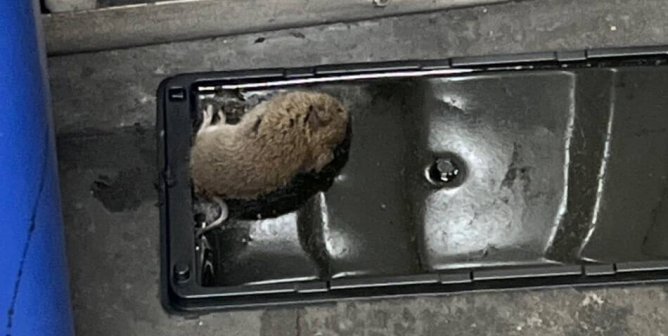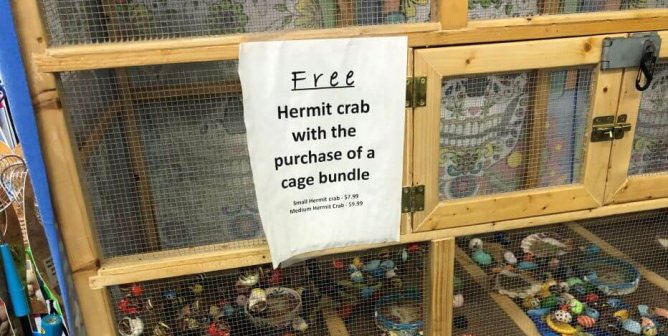Where to Get Help if You Witness a Crime Against a Wild Animal
You’ve seen a wild animal being abused and want to do something about it, but you don’t know what to do. Here are a few steps to help you with a cruelty investigation.
Where to Start
First, find out who in your town, county, and/or state investigates and enforces the anti-cruelty codes. Often, these people work for local humane societies, societies for the prevention of cruelty to animals (SPCAs), or taxpayer-funded animal shelters.
If you cannot locate the proper person, call or visit your local sheriff’s office or police department to ask for help with enforcing the law. Before doing so, review your county and state laws by visiting municode.com and animallaw.info. The state statute and county code will tell you exactly what your local laws prohibit a person from doing to an animal. Print a copy to take with you. In most states, causing an animal “unnecessary suffering” is illegal, as is beating an animal, depriving him or her of food, and so on.
Fortunately, many wild animals are also protected under wildlife-specific state and federal laws. For example, all birds and their nests, with the exception of pigeons, starlings, grackles, and English house sparrows, are protected under the federal Migratory Bird Treaty Act (MBTA). If you or anyone else has witnessed anyone harming protected birds, you should contact your local U.S. Fish and Wildlife Service special law enforcement officials immediately. They should begin an investigation and charge those responsible with MBTA violations.
Also, the U.S. Fish and Wildlife Service and your state wildlife agency maintain lists of threatened and endangered animals that are protected by both state and/or federal laws. An “endangered” species is one that is in danger of extinction throughout all or a significant portion of its range. A “threatened” species is one that is likely to become endangered in the foreseeable future.
State wildlife agencies also only allow certain animals to be hunted and killed during designated times of the year. People who violate hunting laws are referred to as “poachers” and should be reported to state authorities immediately. Activities often associated with “poaching” include, but are not limited to, spotlighting and killing deer at night, killing bears illegally, baiting, trespassing, and road hunting.
Gathering Evidence
Once you have located the proper law enforcement officer, provide him or her with a concise, written, factual statement of what you have observed, giving dates and approximate times. If you can, photograph the situation and date your photographs. You should also try to get short, factual, written statements from other witnesses.
Always keep a record of the people you contact, the date of the contacts, and the content and outcome of your discussions with each of them. Never pass along a letter or document without making a copy for your file. Make it crystal clear that you wish to pursue your case and are willing to lend your assistance, as needed.
Pursuing Your Case
If you are not able to get a satisfactory response from the enforcement officers, present your documented case to their supervisors and, if necessary, to local government officials, such as the county commissioner, and ask them to intervene.
If you have witnessed the cruel act yourself, you can go to your local magistrate’s office and ask to swear out a warrant to summon the accused person to court. Sometimes, expert witnesses can be crucial to the case. A veterinarian, for example, can sign a statement that it is his or her expert opinion that an animal suffers physically and emotionally if beaten, separated from her young, deprived of food, etc. Expert opinions often make or break a case, so familiarize yourself with your local veterinarians and their various fields of expertise. You will need to be ready to seek his or her assistance and tell law enforcement that you have expert support.
By keeping a factual, well-documented, step-by-step record of the case, if all else fails, you can always visit or call your local newspapers and television stations and try to interest reporters in the story. A news story may force officials to act or scare the person perpetrating the abuse into stopping. Other people who have seen similar acts may then be encouraged to step forward.
Calling Us for Help
Please feel free to contact PETA’s Cruelty Investigations Department at 757-622-7382 for further assistance if you get stuck. We know that investigations can be difficult and sometimes discouraging. But animals are depending on you to follow through. You can make all the difference in the world for them. We wish you success in your efforts!
Specific Types of Facilities
The following are some pointers on problems to look for in various types of facilities, what laws apply, and who is responsible for inspecting each type of facility.
Nuisance Wildlife Control Operators
- What to Look for: Whether they use cruel traps, snares, and/or poisons, whether they use glue traps, their method of killing animals (e.g., whether they drown animals or perform acetone injections), employee reliability and attitude
- What Laws Apply: State anti-cruelty statutes, state and federal wildlife laws, local ordinances
- Who Inspects: State officials (in some states)
Pest-Control Companies
- What to Look for: Whether they use glue traps or poisons, their method of killing (e.g., whether they drown animals or perform acetone injections), employee reliability and attitude
- What Laws Apply: State anti-cruelty statutes, state and federal wildlife laws, local ordinances
- Who Inspects: State officials and federal officials (in some states)
Zoos
- What to Look for: Whether the animals are in good health, whether people can get too close to the animals, what form of population control is used, what happens to surplus animals
- What Laws Apply: Animal Welfare Act, state anti-cruelty statutes
- Who Inspects: USDA/APHIS, local law enforcement
Exhibitors and Traveling Animal Shows
- What to Look for: Animals’ physical condition, abnormal stereotypic behavior, unnecessary suffering, travel accommodations
- What Laws Apply: Animal Welfare Act, state anti-cruelty statutes, commercial laws, zoning regulations
- Who Inspects: USDA/APHIS, local law enforcement
Exotic-Animal Dealers and Trade Shows, Dog Dealers (Also Known as Puppy Mills), Wildlife Dealers, and Auctions
- What to Look for: Physical condition, severe crowding, selling endangered species without the required permit
- What Laws Apply: Animal Welfare Act, state anti-cruelty statutes, Endangered Species Act (if selling endangered species)
- Who Inspects: USDA/APHIS, local law enforcement, U.S. Fish and Wildlife Service
Animal Shelters
- What to Look for: Conditions at the shelter, method of euthanasia, adequate veterinary care, employee reliability and attitude
- What Laws Apply: State anti-cruelty statutes, local ordinances
- Who Inspects: County and state officials (in some states)
Wildlife Rehabilitation Centers
- What to Look for: Conditions at the shelter, method of euthanasia, adequate veterinary care, employee reliability and attitude
- What Laws Apply: State anti-cruelty statutes, state and federal wildlife laws, local ordinances
- Who Inspects: State and federal officials (in some states)
Pet Stores
- What to Look for: Sanitation, physical health, severe crowding, selling endangered species
- What Laws Apply: Animal Welfare Act (if selling wild animals), state anti-cruelty statutes, health regulations
- Who Inspects: USDA/APHIS (if selling wild animals or “pocket pets” and/or exhibiting exotic animals), local law enforcement, state health department, state department of the environment









